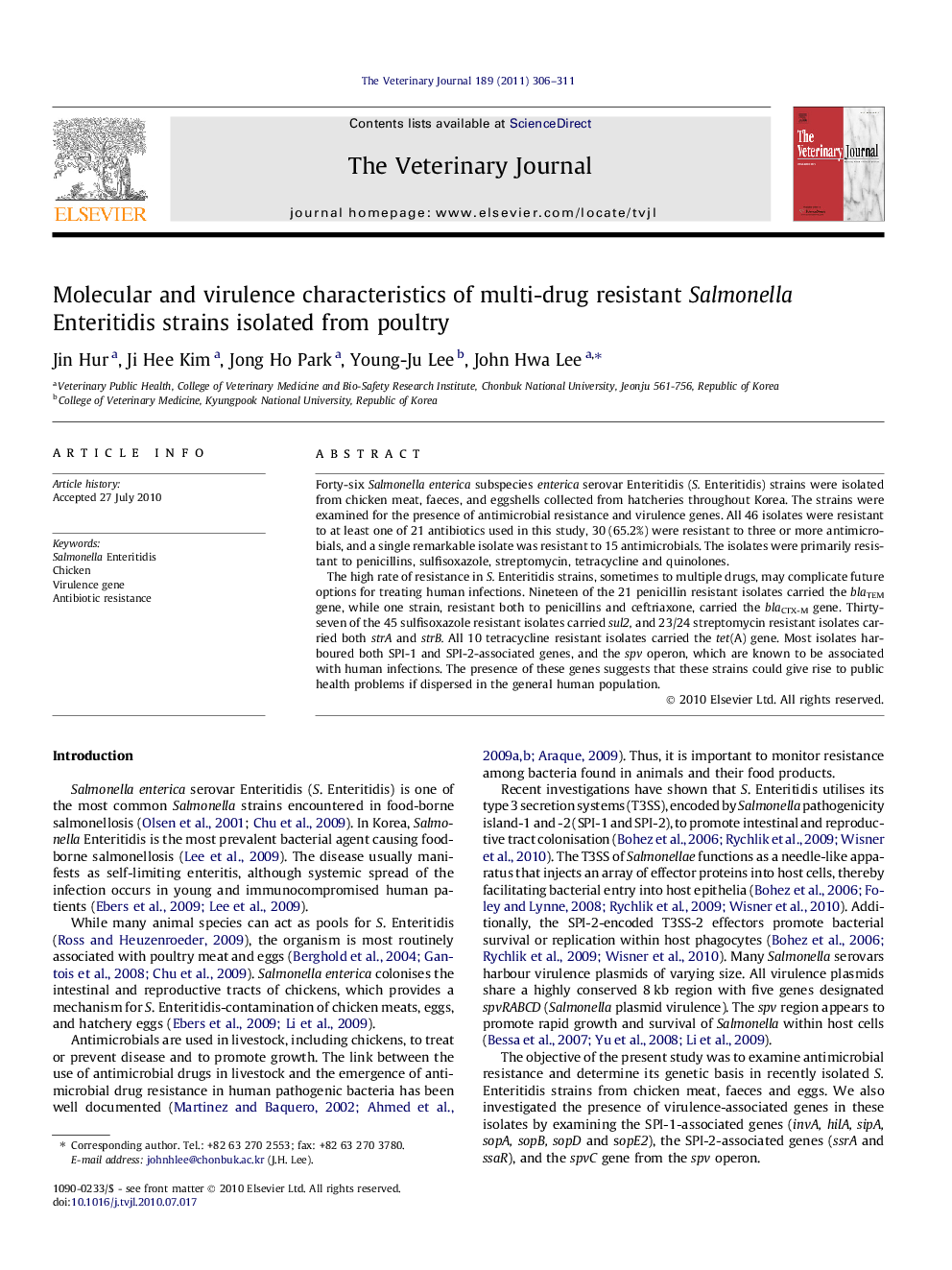| Article ID | Journal | Published Year | Pages | File Type |
|---|---|---|---|---|
| 2464662 | The Veterinary Journal | 2011 | 6 Pages |
Forty-six Salmonella enterica subspecies enterica serovar Enteritidis (S. Enteritidis) strains were isolated from chicken meat, faeces, and eggshells collected from hatcheries throughout Korea. The strains were examined for the presence of antimicrobial resistance and virulence genes. All 46 isolates were resistant to at least one of 21 antibiotics used in this study, 30 (65.2%) were resistant to three or more antimicrobials, and a single remarkable isolate was resistant to 15 antimicrobials. The isolates were primarily resistant to penicillins, sulfisoxazole, streptomycin, tetracycline and quinolones.The high rate of resistance in S. Enteritidis strains, sometimes to multiple drugs, may complicate future options for treating human infections. Nineteen of the 21 penicillin resistant isolates carried the blaTEM gene, while one strain, resistant both to penicillins and ceftriaxone, carried the blaCTX-M gene. Thirty-seven of the 45 sulfisoxazole resistant isolates carried sul2, and 23/24 streptomycin resistant isolates carried both strA and strB. All 10 tetracycline resistant isolates carried the tet(A) gene. Most isolates harboured both SPI-1 and SPI-2-associated genes, and the spv operon, which are known to be associated with human infections. The presence of these genes suggests that these strains could give rise to public health problems if dispersed in the general human population.
